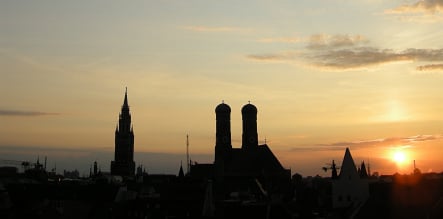The study, conducted in tandem with the Initiative for New Social Market Economy (INSM) reviewed conditions in the country’s 50 largest cities for the last five years, ranking them in terms of economic strength and dynamism. Munich’s wealth, job market and economic structure earned a first place ranking for overall success, followed by Münster, Frankfurt, Karlsuhe, and Düsseldorf.
Meanwhile Saxony’s capital city of Dresden was the country’s most dynamic. Other formerly communist East German cities are “on the fast track,” including Chemnitz, which jumped 23 rankings to 10th place last year, and Rostock, up to 23rd place from almost last place. These cities on the study’s dynamism rankings can thank attractive worker costs and high investment quotas for their new success, the study said.
Capital city Berlin tanked for the second year in a row, earning last place overall. The job market in the city is worse than any other large city.
Cities in the German state of North Rhine-Westphalia also ranked at the bottom of all aspects of the study, with Wuppertal in last place for dynamism. Meanwhile Herne’s status deteriorated the most of any city in the study, falling 22 ranking to 34th. The gap between the struggling cities and the leaders is shrinking, though, INSM head Max Höfer said on Friday.
The study, conducted anually since 2004, included criteria such as average incomes, gross domestic product and pro-business atmosphere.



 Please whitelist us to continue reading.
Please whitelist us to continue reading.